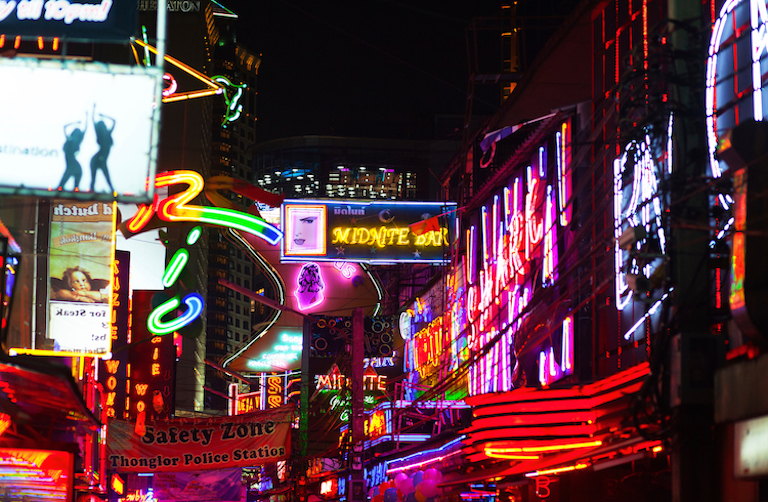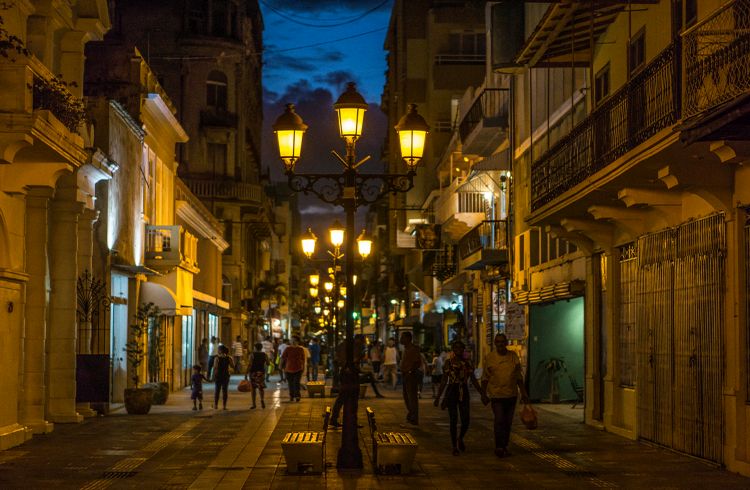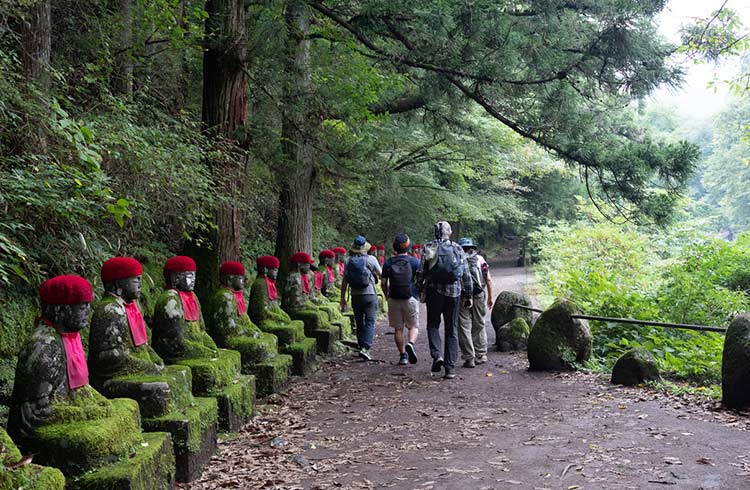Sex Tourism Exploits: How Travelers Can Help Stamp It Out
Sex tourists travel with the intention to offend and ruin lives. What can travelers do to help?
 Photo © PhotoShelter
Photo © PhotoShelter
- Child sex offending
- Action on the ground
- What can travelers do?
- The impact of the global pandemic on sex tourism
Early evening in Bangkok’s notorious Patpong Road district and tourists move through the heaving humidity, the chaos of clubs and holiday dreams.
Here there are two types of traveler, curious, unsuspecting visitors and more conspicuously, those on the prowl, eager to select a girl by the number pinned on her brief costume. Just like circling the numbers on a lotto ticket but with less concern about the consequences.
And it’s a story being played out every night, in every country in the world, not just Thailand and most certainly not only in developing nations.
It’s an issue as complex as it is disturbing. Sex tourism. What is it? Who does it impact? And how can it be stopped? Where does that scratchy line between legal, regulated prostitution end and the scourge of human trafficking begin?
Child sex offending
Even those who work closely in the field are divided on its definition. But they are united in the cause to stop it. Australian Federal Police (AFP) Detective Superintendent Jayne Crossling for the Australian Centre To Counter Child Exploitation (ACCCE), says the AFP does not use the term “sex tourism” or “sex tourists” but instead categorises this type of offending as “traveling child sex offending” and “child sex offenders”.
“The AFP does not provide comment on preferred destinations for traveling child sex offenders as it could highlight and provide opportunities for others looking to travel with the intention of offending,” Detective Crossling says.
“We continue to work with law enforcement agencies across Southeast Asia to build capacity to detect and take action against such offending.
“With regard to traveling sex offenders, Australia is predominantly a ‘source’ country, meaning that more Australians travel overseas to commit child sex offences, rather than overseas offenders traveling to Australia to commit offences.”
Action on the ground
Kristen Scharf is the Cambodia Country Manager for A21, one of the largest organizations in the world that is solely fighting human trafficking at a local, domestic and international level.
Since 2008, it has expanded to 19 locations in 14 countries, including an office in Sydney.
According to A21, human trafficking is “the illegal trade of human beings: the recruitment, control, and use of people for their bodies and for their labour”.
And the statistics are sobering:
- There are more people enslaved today than in any other time in history
- An estimated 40.3 million people are enslaved today
- Human trafficking generates an average of USD $150 billion a year
- Men, women and children can all be victims of trafficking with women the most likely at 71 per cent; men 29 per cent; and children 25 per cent
- Slavery happens in every country
- An estimated 5.4 out of every 1,000 people are enslaved around the world.
Ms Scharf says sex tourists are motivated by the freedom of social restraints governing their behavior at home, procuring their victims online before they go; online once in destination; and via contacts on the ground.
“Sex tourist discards their moral values abroad and think they can escape the consequences by taking advantage of vulnerable populations and weak legal systems,” she says.
What can travelers do?
Responsible global tour operators such as G Adventures are aware of the impact of sex tourism around the world. G Adventures runs tours to places such as Nepal where, as part of their trip, travelers can visit the SASANE project in Kathmandu which assists survivors of sex trafficking and slave labour.
Launched more than a decade ago, with the assistance of a USD $25,000 injection from G Adventures, SASANE rescues women who have been trafficked, and trains them to become paralegals so that they, in turn, can represent other women. Those who don’t have a basic education, are trained in valuable hospitality skills, which they share along with their stories to tourists, under the Sisterhood of Survivors project.
Since it was established, more than 249 women have been trained to become paralegals, offering free-of-charge assistance to other survivors, who they have represented in more than400 court cases.
Nepal is considered the epicentre of human trafficking – with India its main customer - and the issue has only worsened since the 2015 earthquake resulted in more poverty and displacement.
Money raised from visiting tourists assists in keeping the operation afloat amid claims human trafficking is the second most prolific organized crime on the planet after the weapons and drug trade. But unlike drugs, a woman can be sold more than once and often many times in one day.
Back in Cambodia, Ms Scharf says those who suspect human trafficking or child exploitation should report it immediately to the country’s anti-human trafficking police.
“The government of Cambodia has zero tolerance for sex tourists and will prosecute individuals for crimes against children,” she says.
Human Trafficking Search, which documents human trafficking and modern slavery, also produces research guides, and toolkits to help raise awareness of trafficking and sex tourism. It recommends travelers help stamp it out by reporting what they see, only using responsible travel tourism operators committed to anti-trafficking, and to always thoroughly research any volunteer organizations involving children.
The impact of the global pandemic on sex tourism
Detective Crossing says the AFP believes it is “highly unlikely” that child sex offenders were leaving Australia for the purposes of offending against children during the period when Australia’s international borders were closed.
“It is too early to determine the effect that the reopened border has had on this type of offending, however it is highly likely the destinations that were previously attractive to travelling child sex offenders prior to COVID-19 will remain attractive with the borders reopened,” she says.
“The AFP is working closely with partners to detect, prevent and where necessary prosecute offenders in relation to travelling sex offending.”
At A21 in Cambodia, Ms Scharf says they have noticed a drop in child sex tourism since COVID-19 but intel from its partner agencies reveals there has been a “large shift” to online child exploitation.
As travelers re-enter the world, it’s important to remember the lives of those who are powerless to defend themselves depend on people making the right choices to end the cycle.
Related articles
Simple and flexible travel insurance
You can buy at home or while traveling, and claim online from anywhere in the world. With 150+ adventure activities covered and 24/7 emergency assistance.
Get a quote

1 Comment
So the official from the organization mentions that they don't provide destination names to avoid alerting people to then, yet you do this in the first clause of the first sentence of the article! Makes you wonder what exactly is the point of this piece